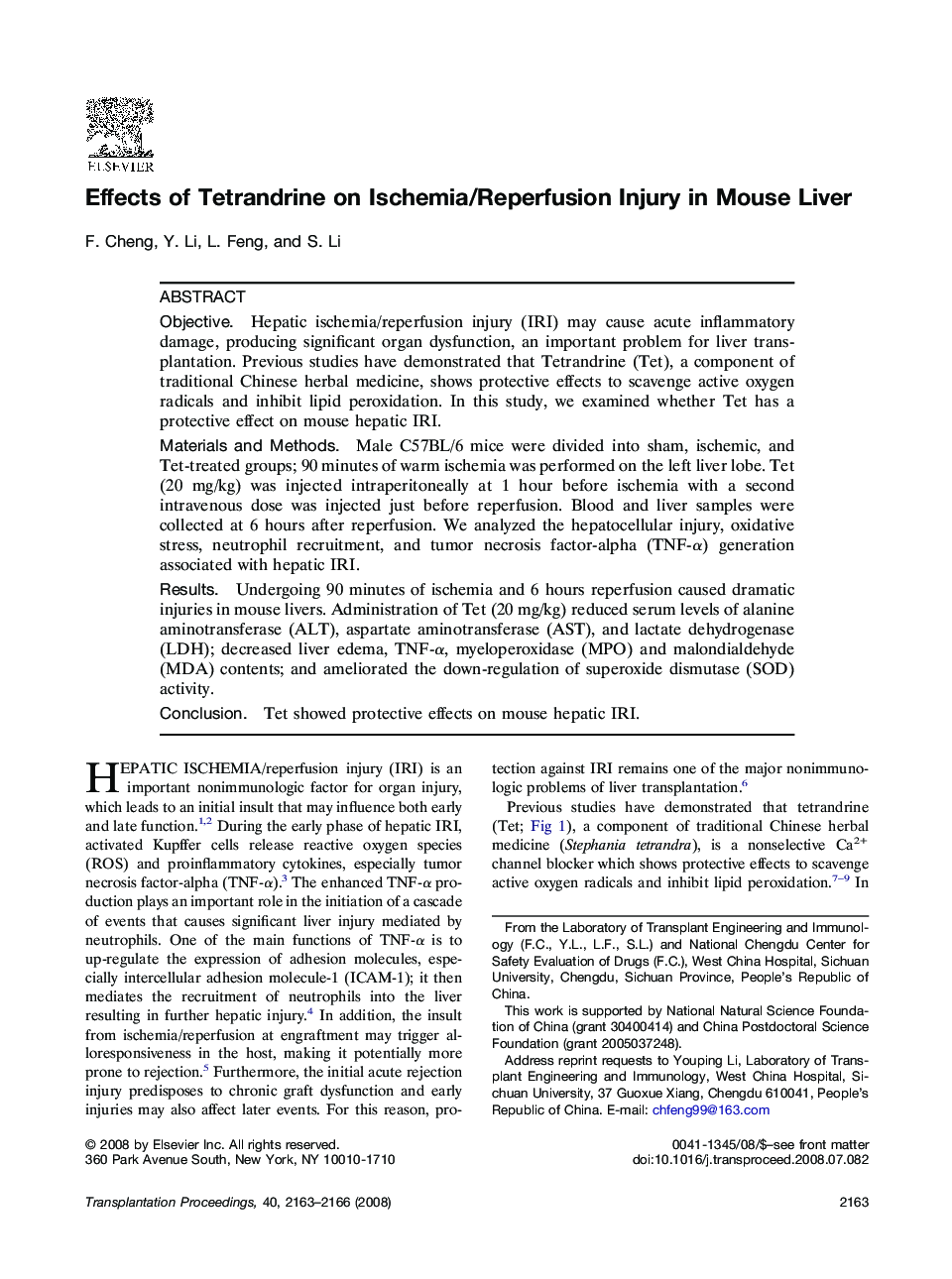| Article ID | Journal | Published Year | Pages | File Type |
|---|---|---|---|---|
| 4262461 | Transplantation Proceedings | 2008 | 4 Pages |
ObjectiveHepatic ischemia/reperfusion injury (IRI) may cause acute inflammatory damage, producing significant organ dysfunction, an important problem for liver transplantation. Previous studies have demonstrated that Tetrandrine (Tet), a component of traditional Chinese herbal medicine, shows protective effects to scavenge active oxygen radicals and inhibit lipid peroxidation. In this study, we examined whether Tet has a protective effect on mouse hepatic IRI.Materials and MethodsMale C57BL/6 mice were divided into sham, ischemic, and Tet-treated groups; 90 minutes of warm ischemia was performed on the left liver lobe. Tet (20 mg/kg) was injected intraperitoneally at 1 hour before ischemia with a second intravenous dose was injected just before reperfusion. Blood and liver samples were collected at 6 hours after reperfusion. We analyzed the hepatocellular injury, oxidative stress, neutrophil recruitment, and tumor necrosis factor-alpha (TNF-α) generation associated with hepatic IRI.ResultsUndergoing 90 minutes of ischemia and 6 hours reperfusion caused dramatic injuries in mouse livers. Administration of Tet (20 mg/kg) reduced serum levels of alanine aminotransferase (ALT), aspartate aminotransferase (AST), and lactate dehydrogenase (LDH); decreased liver edema, TNF-α, myeloperoxidase (MPO) and malondialdehyde (MDA) contents; and ameliorated the down-regulation of superoxide dismutase (SOD) activity.ConclusionTet showed protective effects on mouse hepatic IRI.
